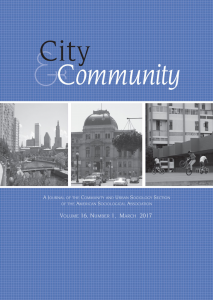The Unhappy Laborer and Your Happy Consciousness
nmccoy1
 In a New York Times article (see below), consumers of organic food have become distressed to learn that organic food may not actually be safer than other food products. While it is clear that consumers who shop organic are right to expect higher standards, we may need to question what standards they are invoking. In an age of information, consumers are more capable than ever before of researching food product ingredients, nutrition, pesticide use, and labor rights. Yet labor rights as an integral component of food production, manufacturing, and harvesting is almost never questioned. An organic company may very well allow their chickens to roam free and feed them chemical-free grain but how often do we question the ways in which the human laborers are treated and paid at the very same company? Should we not include labor rights as one component of the food industry that needs to be considered when discussing safety and humane standards? Herbert Marcuse’s notion of the Happy Consciousness is one possible explanation for this lack of concern beyond our individual needs and wants. According to this theory, we may subconsciously be aware of many unseemly and unethical aspects of food production but we make a conscious decision to focus on the positive gains for ourselves. In this case, we feel good knowing that our children are eating fewer pesticides and pathogens. It seems as though we need to rethink our standards regarding all aspects of food production including but not limited to companies that treat food, animals, laborers, and consumers with care and respect.
In a New York Times article (see below), consumers of organic food have become distressed to learn that organic food may not actually be safer than other food products. While it is clear that consumers who shop organic are right to expect higher standards, we may need to question what standards they are invoking. In an age of information, consumers are more capable than ever before of researching food product ingredients, nutrition, pesticide use, and labor rights. Yet labor rights as an integral component of food production, manufacturing, and harvesting is almost never questioned. An organic company may very well allow their chickens to roam free and feed them chemical-free grain but how often do we question the ways in which the human laborers are treated and paid at the very same company? Should we not include labor rights as one component of the food industry that needs to be considered when discussing safety and humane standards? Herbert Marcuse’s notion of the Happy Consciousness is one possible explanation for this lack of concern beyond our individual needs and wants. According to this theory, we may subconsciously be aware of many unseemly and unethical aspects of food production but we make a conscious decision to focus on the positive gains for ourselves. In this case, we feel good knowing that our children are eating fewer pesticides and pathogens. It seems as though we need to rethink our standards regarding all aspects of food production including but not limited to companies that treat food, animals, laborers, and consumers with care and respect.
NY Times




1468-0491/asset/society_affiliation_image.gif?v=1&s=859caf337f44d9bf73120debe8a7ad67751a0209)
